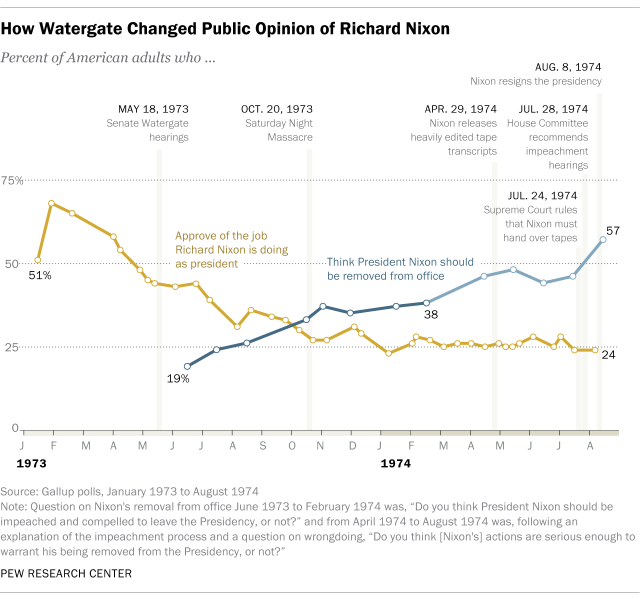Impeachment Begins: A Recap of a Dizzying Day in American History
Photo by Pool/Getty
WELL THEN. A lot happened in the last 48 hours. The hurricane of BS surrounding us in the Trump Era can be overwhelming, but this saga unfolded particularly quickly—so before we get into why events like formal impeachment in the House and a unanimous Republican rebuke to Trump in the Senate have taken place, let’s recap what Trump did that finally pushed Congress over the line.
This summer, a whistleblower from the intelligence community filed a complaint around a phone call Trump had with the President of Ukraine on July 25th. According to Trump and his personal attorney/unofficial Secretary of State, Rudy Giuliani, they demanded that Ukraine’s president open an investigation into Joe Biden, surrounding the dismissal of a well-known and wildly corrupt Ukrainian prosecutor that the entire Western world succeeded in removing while Joe Biden was Vice President. Biden was part of the effort to oust the prosecutor, but all contemporaneous evidence proves that he was far from alone, so the notion that pushing the prosecutor out was all about Joe Biden has absolutely no evidence (that’s not to say that Hunter Biden being given a board seat by a Ukrainian oil oligarch the same year Hunter was discharged from the Navy over cocaine—and the same year that Russia invaded Ukraine—isn’t a problem, but that’s a very different story than the one that Trump and Giuliani are trying to spin).
I hadn’t seen this full Giuliani quote from May. It’s pretty wild. He just states the whole thing out loud. https://t.co/s2rvhkwjNcpic.twitter.com/ic9buHVa6r
— Dan Amira (@DanAmira) September 25, 2019
Here is where this really gets impeachable: prior to the phone call, Trump withheld about $400 million in military aid pledged to the Ukrainian armed forces who are fighting the Russian-backed separatists invading their eastern flank. Just earlier this month, $250 million Trump was holding up finally was released as well. A whistleblower reported that something untoward happened in this conversation with the Ukrainian President, and after the complaint was verified as extremely credible by the intelligence community’s inspector general, well…the law states that the Director of National Intelligence must forward the complaint to Congress. Trump’s new DNI did not, stating they were ordered not to—which, given the very few number of positions above it in the executive branch organizational chart, means the order almost surely came from the Oval Office.
Tl;dr—Trump very likely blackmailed a key ally using the U.S. military (destroying yet more global trust in our armed forces and making future operations more difficult and more deadly) and taxpayer money (at least $650 million), in an attempt to coerce the Ukrainian government into fabricating a criminal charge against a former United States Vice President. When Trump was caught, he almost surely ordered his Director of National Intelligence to break the law and hide a presidential violation of the Constitution from Congress.
The term you’re looking for here is quid pro quo, and an order to the DNI could be construed as an acknowledgement of guilt. If we are truly a nation of laws, we cannot let this stand, and this is why impeachment has unfurled so quickly. While the ground seemed to shift under everyone’s feet in the Democratic House majority overnight, on a relative basis, we were temporarily teleported to a completely different dimension in the Republican universe.
That’s every Senate Republican plus every Democrat now via unanimous consent agreeing to call on the Trump administration to cough up the whistleblower complaint, not just the phone call transcript. This is rare, folks.
— Steven Dennis (@StevenTDennis) September 24, 2019
This is a non-binding resolution and the GOP is still the GOP, so all the usual caveats apply. No one should trust this party until they cast a vote, and even then, still be skeptical. But they did vote on something pretty black and white. Unanimously. Mere hours after Trump pledged to release the transcript of the call to the Ukrainian president. This is a message from Senate Republicans to President Trump:
Do not $&%# with us. You may own our voters, but now that Speaker Pelosi has kick-started this process, we own your fate.
